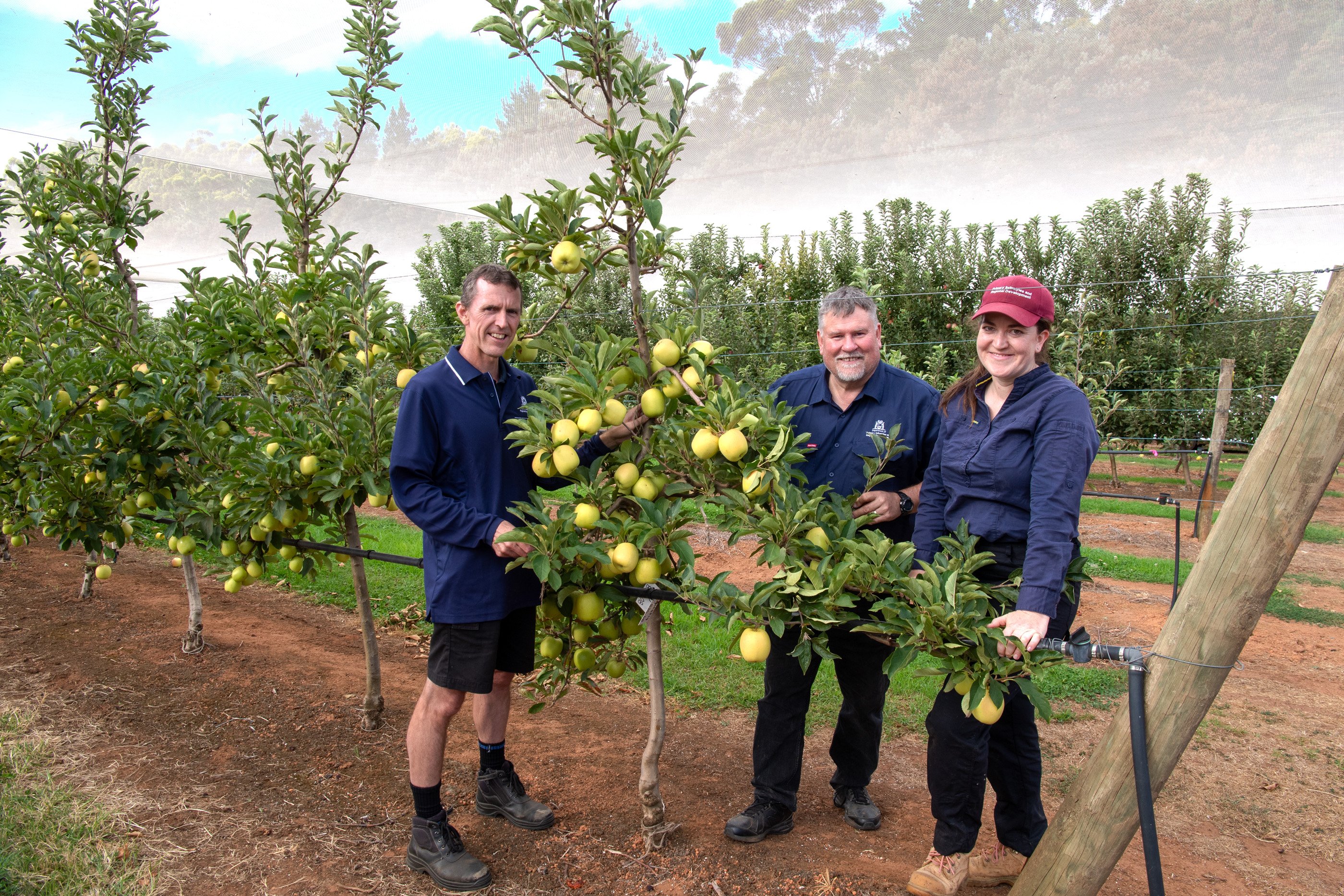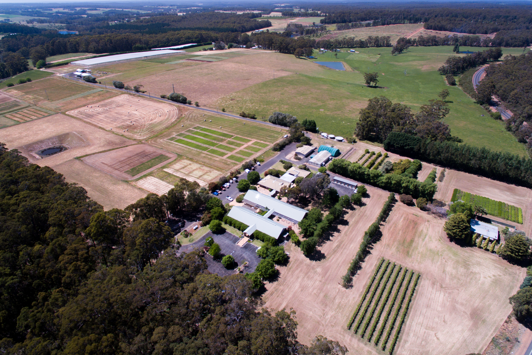The research and development team at Manjimup Horticultural Research Institute works closely with the horticultural industry to lift productivity, understand consumer and market drivers, encourage sustainable production systems, and manage pests and diseases.
Based in the high rainfall (average 1000 mm per year) area of Manjimup, the research and development team at the Manjimup Horticultural Research Institute work closely with the horticultural industry to lift productivity, better understand consumer and market drivers, encourage sustainable and environmentally responsible production systems, and manage pests and diseases to improve product quality, reduce waste, and meet end-user needs. The team has the capacity and expertise to deliver technical horticultural research services across the south-west agricultural region.
The Manjimup Horticultural Research Institute covers 110 hectares (ha), with 55 ha suitable for research trials. Karri loam soils on the property are representative of the high-quality soils that are unique to the Manjimup and Southern Forests region, which grows a broad range of perennial and annual fruit. Market development and export certification form a large component of the institute’s activities.

Research
Research and development at the institute is focused on the genetics and agronomy of a range of temperate fruits, annual vegetables, and specialist crops, including avocadoes, apples, grapes (wine and table), pome and stone fruit, blueberries, truffles, and hemp.
The institute hosts cereal disease evaluation trials as part of the breeding of varieties better suited to Western Australian (WA) growing conditions. The evaluation trials enable oat, barley, and wheat breeding lines to be screened for disease resistance under high disease pressure in the wet and cold Manjimup climate, away from the main WA grain growing regions. The institute also bulks up seed stocks of cereal, pasture, and legume breeding materials using irrigated plots in summer. Evaluation of annual and perennial pasture varieties is undertaken in conjunction with pasture seed companies.
Facilities
- controlled climate hothouse
- shade houses
- drying shed (with experimental green tea processing facility)
- processing facilities
- cool storage rooms
- controlled atmosphere fruit storage evaluation units
- ozone fruit storage units
- chemical and machinery sheds
- drying ovens, wet and dry laboratories
- comprehensive array of tractors and other machinery suited to agricultural and horticultural research
- mechanical workshop
- grain storage silos
- reticulated irrigation (permanent and semi-permanent capacity)
- four gully irrigation dams licenced to take 215 ML of water per year (water quality 55 to 130 deciSiemens per metre)
- four hectares of netted structures (to exclude birds) for breeding and evaluation of perennial horticultural crops
- conference and meeting rooms with video conferencing capability
- house on-site available to visiting staff, contractors, and collaborating research and development personnel.
Co-locators
Pomewest, an apple and pear sub-committee of the Agricultural Produce Commission's pome, citrus, and stone fruit committee.
Contact us
-
Manjimup Horticultural Research Facility28527 South West Hwy
Middlesex WA 6258
Postal: Locked Bag 7
Manjimup WA 6258

